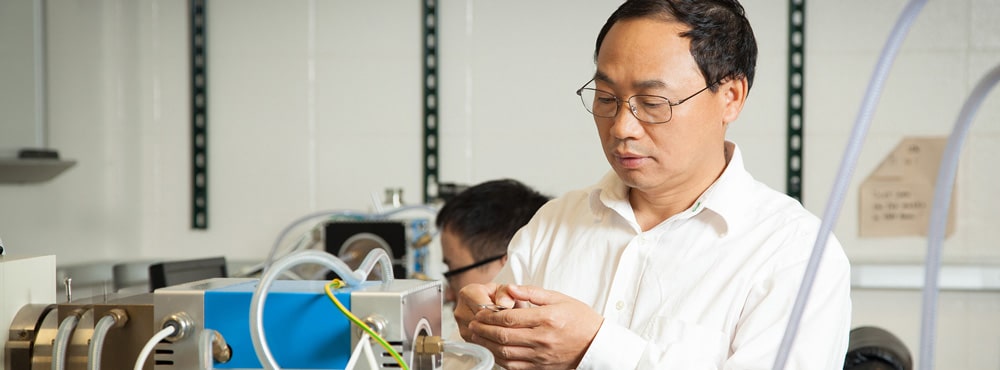Experts work together to learn new insights
Hydrogen is the most abundant element in the universe and is a renewable energy source, so it’s no surprise that people are interested in feasible ways to produce more. A particular area of focus involves creating hydrogen from seawater. Here’s a closer look at recent progress in that area.
Many researchers quickly realize they’re more likely to make meaningful gains by working with other experts with the same focus. That’s the primary concept of a project involving multiple institutions. The goal is to create a prototype that makes hydrogen from low-grade liquids, including seawater and wastewater.
Participants will work toward that goal by relying on experts with knowledge of electrolyzers and membranes. Over the project’s four-year span, researchers hope to find membranes using abundantly available metals like nickel and iron. They also want to find alternatives to options that cause pollution or have persistent adverse effects, making the associated electrolyzers easier to recycle.
Researchers hope to accelerate their prototype-creation process after identifying future options. Ireland’s University of Galway will be the project’s lead institution. However, participating organizations from Israel, Spain and Germany will also be involved.
This project is part of larger European Commission endeavors to find feasible routes toward the increased production of green hydrogen. For example, the recently announced European Hydrogen Bank’s goal is to domestically produce 10 million metric tons of renewable hydrogen by 2030. That amount would be on top of 10 million metric tons sourced from imports.
People could replace hydrogen with fossil fuels if these collective efforts succeed, resulting in cleaner, more environmentally friendly transportation options. Additionally, facilitating hydrogen production could provide the chemical industry with a more sustainable raw material for producing fertilizers, steel and more.
A newly developed electrocatalyst
Many companies are working on achieving net-zero status. However, there’s no single way to do that. One option is to pursue new technologies to reduce greenhouse gas emissions. Researchers also investigate or create pioneering technologies in their quests to get hydrogen from seawater. Electrolysis involves splitting water into hydrogen and oxygen, and improving that process could make hydrogen from seawater more accessible.
Consider how a team from the Texas Center for Superconductivity at the University of Houston (UH) in the United States made a nickel- and iron-based electrocatalyst that interacts with copper cobalt during seawater electrolysis. That achievement could overcome previously identified challenges associated with obtaining hydrogen from seawater. For example, current electrocatalysts used to achieve oxygen evolution reaction (OER) are prohibitively costly.
The researchers determined that the OER electrocatalysts they made were among the best performers of all multimetal candidates. Another exciting revelation is that the associated technology and process could make hydrogen production extremely affordable.
As lead researcher Zhifeng Ren explained, 1 kilogram of hydrogen currently requires about 50 kilowatt-hours of electricity to make. If the rate for grid-sourced power is USD 0.10 per kilowatt-hour, it costs USD 5 per kilogram of hydrogen for the power alone. That’s far too expensive to make the possibility attractive.
However, a feasible workaround identified during this study is to use surplus power produced by wind turbines or solar panels. That approach would make the power cost less than USD 0.01 per kilowatt-hour. Ren clarified that this option only becomes viable if people continue pursuing hydrogen creation methods that rely on green energy. Researchers can apply the things learned now to future developments in this area.
Researchers make improvements
Hydrogen research is moving forward in ways that go beyond seawater. For example, Italy has Europe’s first hydrogen-powered residential building, which doubles as a living lab. A hydrogen fuel cell powered by solar and geothermal sources provides all the facility’s heat and electricity.
However, one of the most appealing things about making hydrogen from seawater is that the liquid is plentiful and easily available. Getting clean power from the liquid becomes a more realistic prospect when scientists develop better ways to split the hydrogen and oxygen in seawater.
A team from Pennsylvania State University in the US built a proof-of-concept seawater electrolyzer that uses an electric current to accomplish the splitting mechanism. It relies on a thin and semipermeable membrane originally utilized to purify water through reverse osmosis.
The researchers experimented with two commercially available reverse-osmosis membranes and discovered one performed well while the other proved unsuccessful. They clarified more work is necessary to pinpoint the difference in results. However, since they measured the amount of energy needed for reactions, the membrane’s deterioration rate and how well it resisted ion movement, the team already had lots of useful data.
In another case, a group at the University of Central Florida, also in the US, made a thin film with nanostructures on its surface. The nanostructures featured nickel selenide with added phosphor and iron. Previous efforts had limited efficacy due to competing reactions.
The researchers confirmed the new method overcame that problem and is a reliable, cost-effective solution. Experiments revealed the innovation remained highly efficient and stable for more than 200 hours. Future work will focus on making the newly developed materials more electrically efficient and searching for new options to commercialize and fund these efforts.
There’s still a long way to go before getting hydrogen from seawater becomes a widespread and often-utilized option. However, the efforts highlighted here and elsewhere show that people worldwide are eager to reach that goal.
Author: Jane Marsh


























0 Comments
Trackbacks/Pingbacks